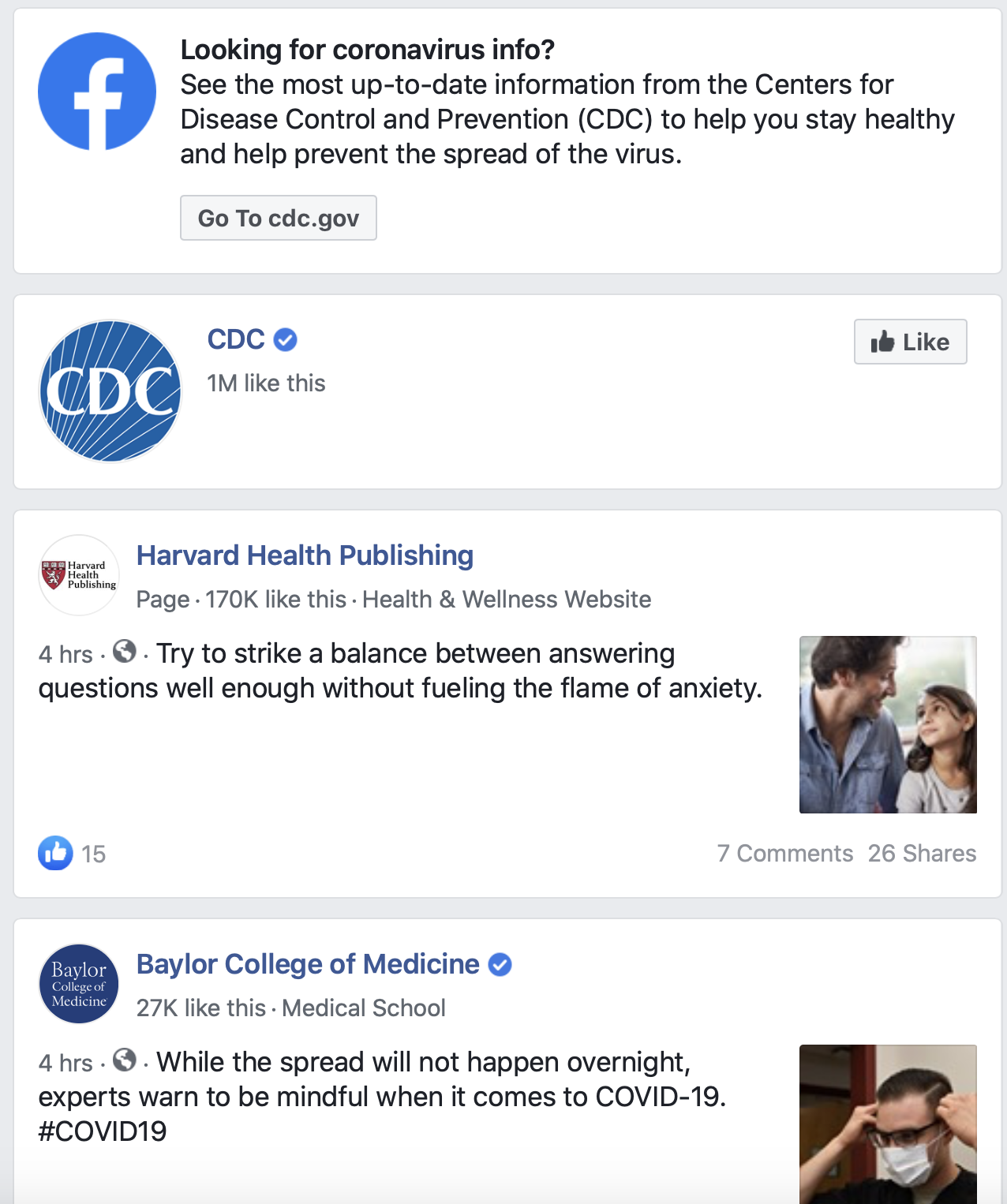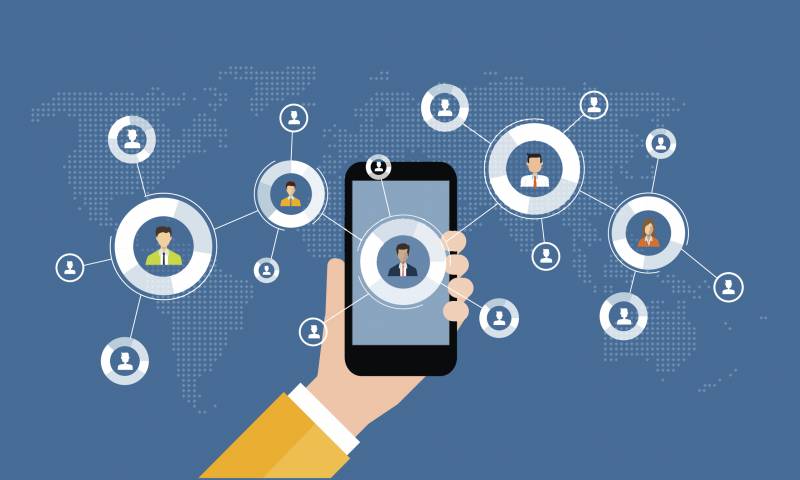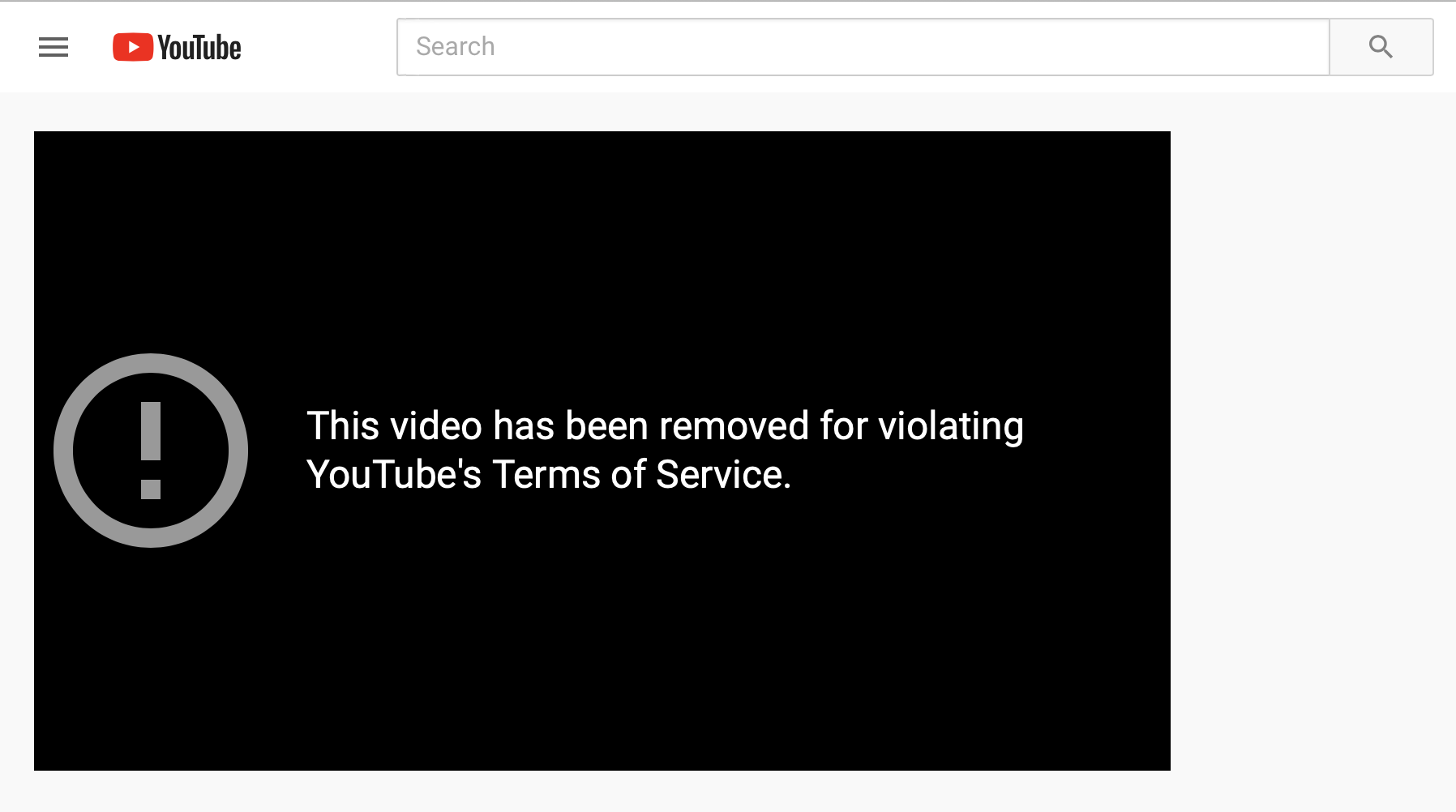Ideas we might normally dismiss out of hand, like how Microsoft co-founder and philanthropist Bill Gates cooked up COVID-19 or that garlic can cure the disease, can seem more credible during times of crisis or when we’re feeling unsure about information coming from experts and political authorities.
That is why social media platforms like Facebook, Google and Twitter are plowing ahead with efforts to emphasize real news and de-emphasize fake news surrounding the coronavirus as the pandemic intensifies. Is it working? Kind of.
They’ve been at it since January, in coordination with agencies like the World Health Organization, which declared the crisis a pandemic on Wednesday. But during public health emergencies, fear and cynicism have a way of amplifying fake news on the internet.
For instance, if you search for the word coronavirus on Facebook, you’ll see evidence of a new policy CEO Mark Zuckerberg announced last week. “A search for coronavirus on Facebook will surface a pop-up that directs you to the World Health Organization or your local health authority for the latest information,” the company wrote. “If you’re in a country where the WHO has reported person-to-person transmission, you’ll also see it in your News Feed.”

Facebook also said it is blocking content that could cause people harm, such as claims that discourage seeking treatment or taking appropriate precautions against the coronavirus. Posts and videos that shared conspiracy theories were clearly marked as false, once they had been reviewed by fact-checkers.

